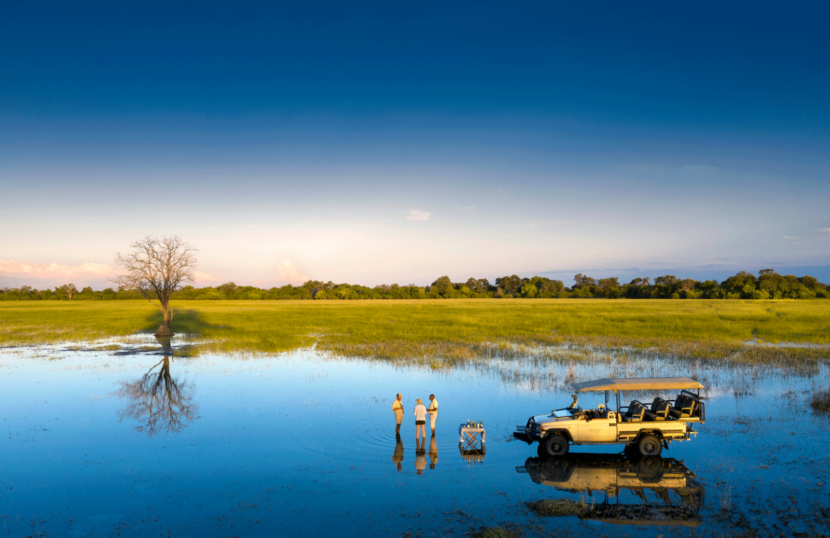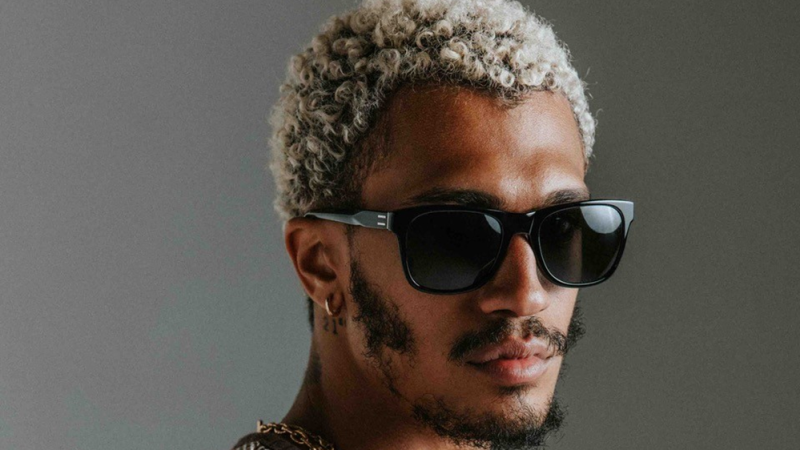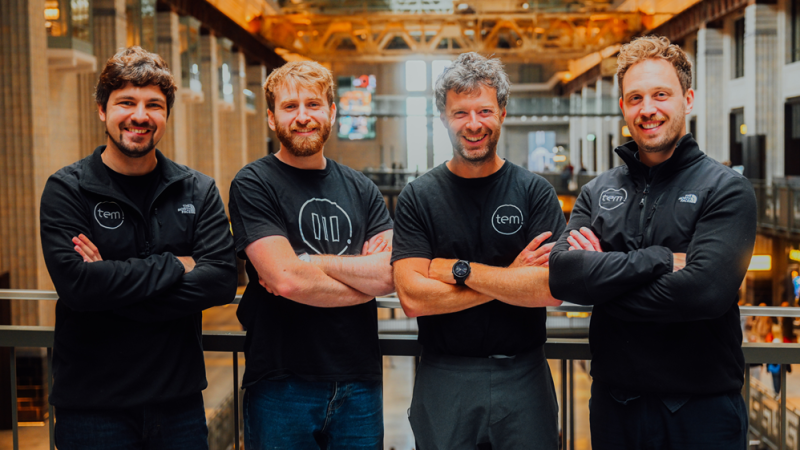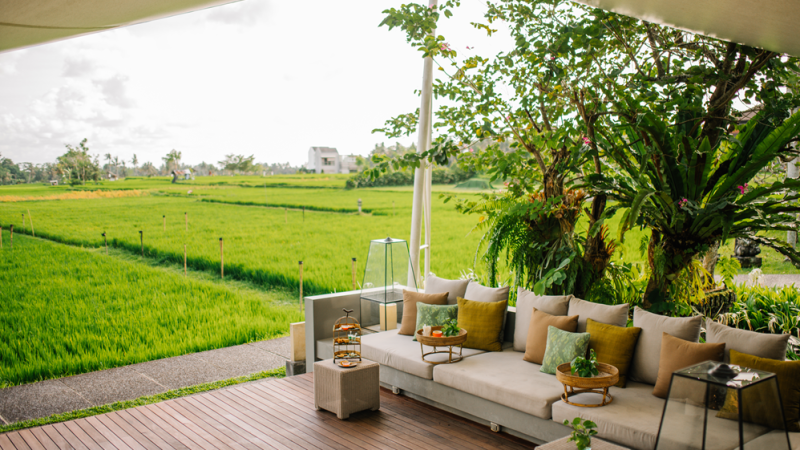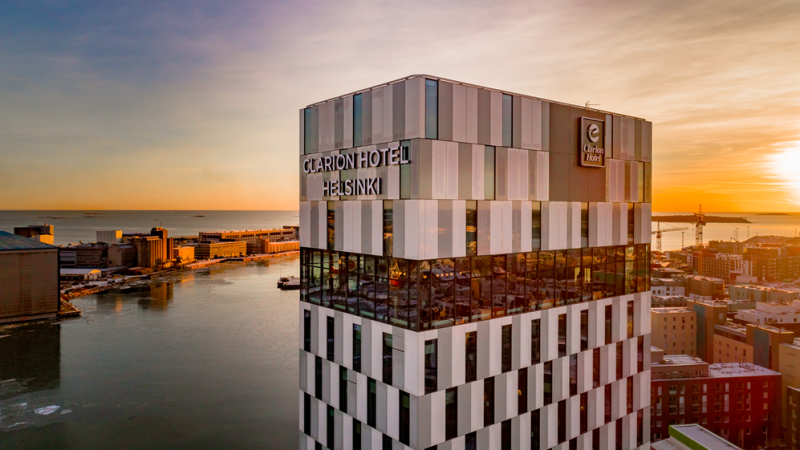African Bush Camps describes itself as a conservation-focused tourism company, running small bespoke safari camps across Botswana, Zimbabwe, and Zambia. The company has enjoyed a lot of success, guided by the principles its founder was trained and brought up in as a safari guide.
“I was a guide for twelve years before I started my first safari camp and the one thing that struck me as very important was that guiding element,” says Beks Ndlovu, African Bush Camps’ CEO. “A good guide will turn a great safari into an exceptional safari. We go beyond the usual experience of being taken around by a knowledgeable driver, instead offering a companion who shares their life journey with you, focusing on the art of guiding. We have brought in the element of hosting, which is a big element of what we do, connecting our guests with people and storytelling.”
African Bush Camps’ camps are well-designed, informed by the local culture and landscape.
“But it’s about the people who we give that platform to tell their story,” Ndlovu insists. “We find in today’s world a lot of hotels have staff you almost do not see. But we elevate our people to the front stage, asking them to tell their story and bring guests the gift of becoming part of that story. And it helps to be in iconic destinations.”
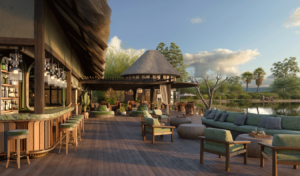 The Guide’s Tale
The Guide’s Tale
Ndlovu has his own story to tell, and it is one he often shares with guests he takes on safari tours of Hwange National Park.
“A question I often get asked is ‘When did you start? Why was this your first camp?’” Ndlovu says. “I grew up in a village just outside Hwange National Park. Guiding in southern Africa and parts of East Africa inspired me to see if I could increase my impact and reach. I was exposed to some incredible parts of Africa, but what bothered me was seeing the abject poverty, the Injustice of inequality. I wanted to make a big difference in local communities and an impact in conservation circles. So, I looked for ways to engage with my people. Hwange is where I had my first guiding job, so that is where I took a business offering in 2006. I then went to Botswana and Zambia, opening camps there.”
It is a unique story, but if you are fortunate enough to be taken on safari by the CEO of the company you would expect nothing less. But Ndlovu is keen to emphasise that everyone at African Bush Camps has their own story to tell.
“We have a guide who has been with us for ten years who made it his job to follow the progeny and legacy of Cecil the Lion,” Ndlovu says, referring to the lion who was famously, and tragically shot by a dentist in 2015. “It was on the back of that, seeing a situation where one person has decided to steal heritage, that this guide went on to watch Cecil’s cubs grow up, as well as his aunties and sisters. He can draw a whole family tree of these amazing animals that have existed and become part of the landscape and storytelling of Hwange.”
African Bush Camps targets local communities, something it can do as part of those communities. Ndlovu cares deeply about reaching out to where people come from and making an impact in those surroundings.
“The stories they have are relevant to the area they come from,” Ndlovu says. “It gives guests an experience of what it is like having grown up here as part of these local communities. People can hear the story of how someone came to work at a particular camp, and really engage in their lives. These stories are far richer than having someone point out a zebra and tell you its gestation period. That is what we build on.”
A Story of Conservation
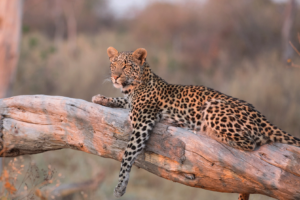 While these stories and connections are meaningful, they are also a means to an end – preserving and supporting the wildlife and communities African Bush Camps works alongside.
While these stories and connections are meaningful, they are also a means to an end – preserving and supporting the wildlife and communities African Bush Camps works alongside.
“If your landscapes are thriving, including the people, the land and the wildlife, then you are achieving your conservation objectives,” Ndlovu tells us.
African Bush Camps’ camps exemplify this approach. They are made of canvas, built on stilts, and floating on wooden decking. These semi-permanent camps are off grid, run by solar farms, with a recycled water system.
“We build our objectives around those core focus areas, collaborating with others wherever possible,” Ndlovu says.
Ndlovu is the founder of the Conservation and Wildlife Fund, which carries out conservation efforts around the Hwange landscape, employing game scouts and working with other parks.
“We believe we should be increasing the size of protected landscapes, keeping them secure from illegal activities such as hunting lions, setting up snares or toxics that illegal operators use to kill elephants, painted dogs, and other protected wildlife,” Ndlovu explains. “We provide resources to protect those landscapes, sweeping and patrolling and working together to deploy game scouts in those areas. We work with local governments and authorities, but that is just one role. You keep a record of how to operate in a way that does not affect or harm the environment.”
Ndlovu is passionate about the African proverb, “If you want to go fast, go it alone, but if you want to go far take others with you.”
“Post-covid, it is important to recognise that while it is great to operate in silos and create legacy projects on your own, you will go further collaborating with others,” Ndlovu insists. “We are always asking how we can take others on the journey with us, creating strong partnerships with like-minded people who share our vision.”
That means strong bonds with African Bush Camps’ staff and local communities, but also the guests that support the company on its current travels and future projects.
